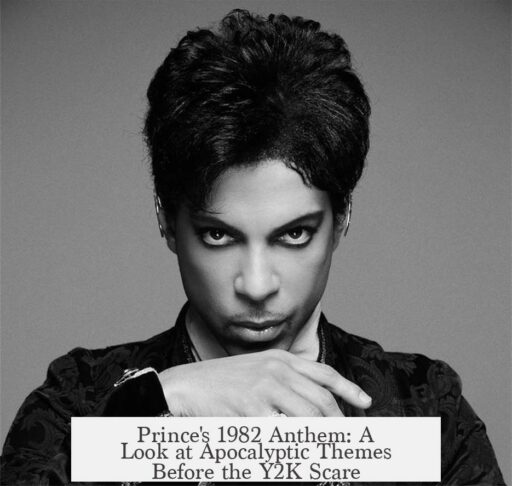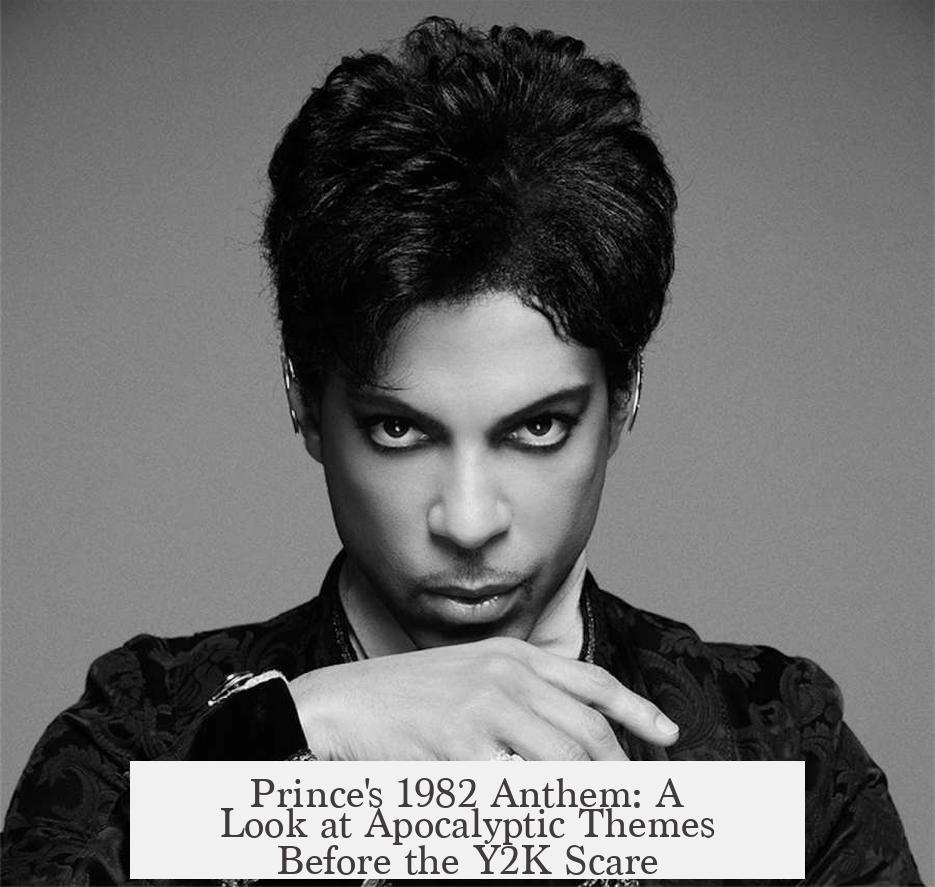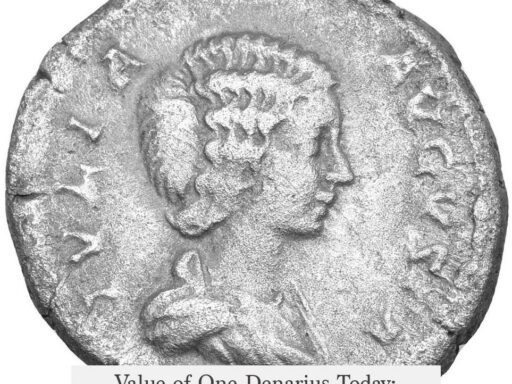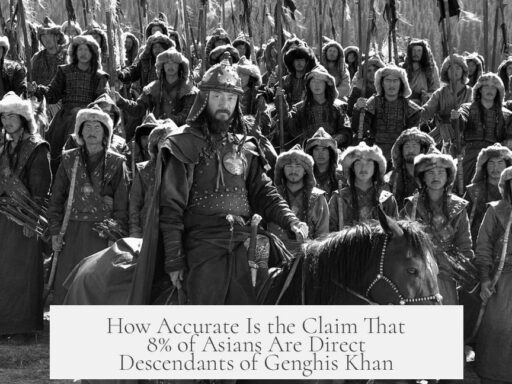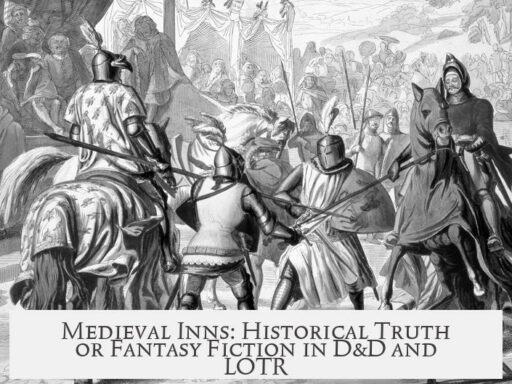Prince’s phrase “party like it’s 1999” in his 1982 song is not about the Y2K bug or fear of computer glitches at the millennium. Instead, it captures widespread anxieties of the early 1980s related to potential nuclear apocalypse and the symbolic weight of the approaching new millennium.
The Y2K bug is a technological concern that became widely discussed only in the mid-to-late 1990s. It involved fears that computers might malfunction when the year changed from 1999 to 2000 due to date formatting limitations. When Prince recorded “1999” in 1982, this was not yet a popular or known issue. His message reflects a different kind of urgency and irony.
At the time, many people interpreted the year 2000 as a milestone with deep cultural and religious significance. Roughly two millennia after the birth of Jesus, it sparked speculation about The End Times or Armageddon. This biblical connection fed apocalyptic anxieties among some religious groups and the general public alike.
Adding to the fear was the tense Cold War atmosphere. The early 1980s saw heightened nuclear tensions between the United States and the Soviet Union. The possibility of nuclear warfare loomed large in public consciousness. President Ronald Reagan’s hawkish stance intensified these fears, making nuclear annihilation a very real concern for many.
Prince’s song, therefore, resonates against this backdrop. It is less about welcoming the millennium’s start and more about seizing life amidst existential dread. The “party” image is a defiant, celebratory reaction to the threat of sudden destruction—“dance one more time before the bomb falls,” as some critics put it.
Contemporary critics viewed “1999” this way. A 1983 *Record Mirror* review highlighted a theory that the year 1999 symbolizes the moment before catastrophe, so people should enjoy themselves while they can. *Creem* magazine emphasized the song’s “existential party” nature, framing it as Prince’s subtle call for nuclear disarmament while acknowledging human desire for pleasure even amid looming disaster.
The *NME* remarked on Prince’s ability to blend apocalyptic themes with pop music, and *Rolling Stone* noted how the album’s title track pondered the future of the planet. The reviewer described it as a dance song charged with Prince’s “will to survive” even as he confronts the nuclear threat.
Prince’s anti-nuclear stance was present in his previous work. His 1981 song “Ronnie Talk to Russia” directly addressed President Reagan, urging diplomacy over destruction. This reinforces that Prince used music to engage with real political fears of the era.
In summary, “party like it’s 1999” reflects early 1980s anxieties about nuclear war and the symbolic approach of a new millennium, rather than any technical fear about the year 2000 computer failures. Prince’s lyrics capture a mindset of defiant celebration in the face of possible apocalypse, urging listeners to enjoy life because the future is uncertain.
| Aspect | Explanation |
|---|---|
| Y2K Bug | Not an issue during early 1980s; popular concern only in the late 1990s. |
| Millennium Significance | Two thousand years after Jesus’ birth inspired apocalyptic speculation. |
| Cold War Context | Nuclear fears due to US-Soviet tensions and Reagan’s policies. |
| Song Theme | Celebrate now before a potential apocalypse; existential party. |
| Critical Reception | Focus on nuclear dread mixed with defiant joy and survival spirit. |
| Earlier Works | “Ronnie Talk to Russia” urged diplomacy during rising tensions. |
- Prince’s “1999” is an apocalyptic celebration, not a Y2K warning.
- 1980s fears centered on nuclear war and religious end-times ideas.
- The song encourages enjoying life amid uncertainty.
- Contemporary critics reinforced the nuclear threat interpretation.
- Prince’s prior songs also addressed Cold War anxieties.
Why Was Prince Singing About “Party[ing] Like It’s 1999” in 1982? Was Fear of a Y2K Disaster Really Already a Thing By Then?
![Why Was Prince Singing About "Party[ing] Like It's 1999" in 1982? Was Fear of a Y2K Disaster Really Already a Thing By Then?](https://vintage.tn/wp-content/uploads/2025/07/7902_prince_1999_song_analysis_why_was_pri.jpg)
Prince wasn’t spooked by a Y2K bug or any computer meltdown in 1982. Instead, “party like it’s 1999” was his anthem for dancing through an uncertain apocalypse. Yes, you read that right: long before millennial computer chaos was on anyone’s radar, Prince was already crafting a party song that doubled as a cheeky nod to global fears.
So, what’s the real story behind those iconic lyrics? Let’s dive in.
The Myth of Y2K: Prince’s Party Is Not a Tech Warning
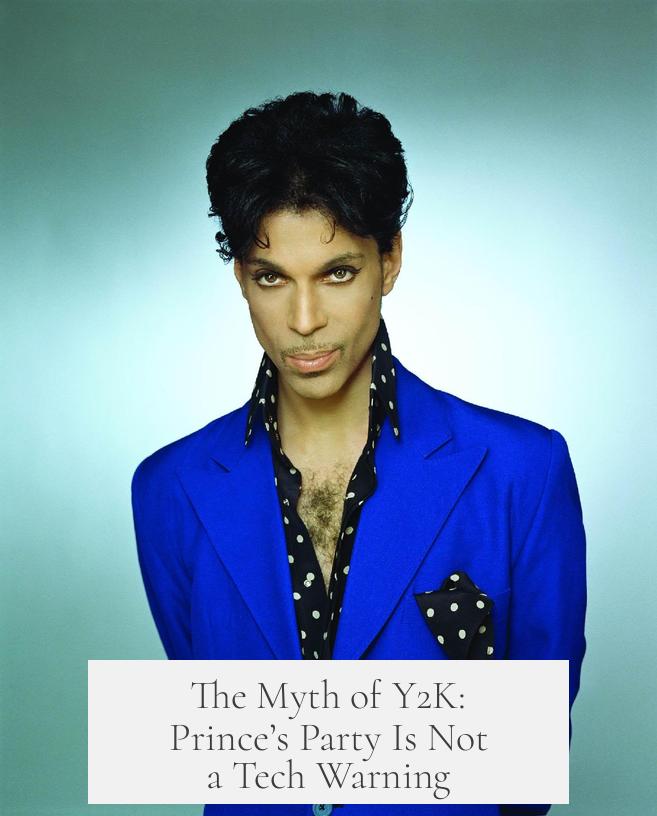
If you’re thinking Prince was ahead of his time warning us about the Y2K bug, think again. The concept of computer glitches when the calendar flipped to 2000 wasn’t even mainstream in the early 1980s—it really hit the media spotlight only in the mid-to-late 1990s. So no, Prince wasn’t a tech prophet.
His song wasn’t about a digital apocalypse but rather about epic celebrations. The year 1999 was viewed as a major milestone, a threshold where people imagined the biggest New Year’s Eve bash imaginable. Think of it as the ultimate “last hurrah” before the new millennium, where everyone parties like there’s no tomorrow.
Apocalyptic Vibes: The Cold War Shadow Loomed Large
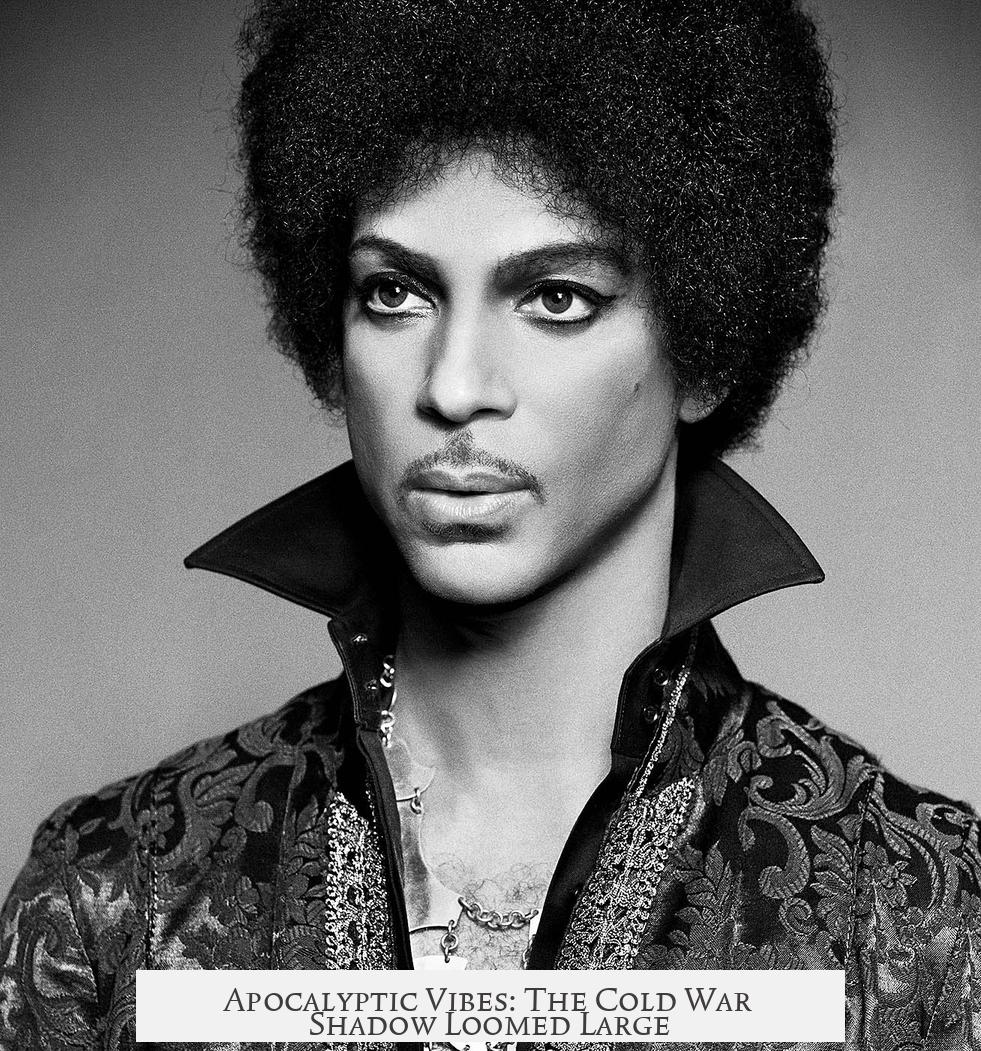
What Prince was tapping into was the very real sense of dread permeating the early 1980s. The Cold War was at its peak, and people lived under the constant shadow of nuclear annihilation. The timing of the approaching new millennium — almost 2,000 years after the birth of Jesus — stirred theological chatter about the End Times. Prince cleverly weaved these fears into his music.
Imagine this: Cold War anxieties and apocalyptic religious themes converging just as Ronald Reagan cranked up his hawkish rhetoric. The early 80s saw a cultural atmosphere thick with talk of nuclear Armageddon. Movies like Red Dawn weren’t just popcorn flicks; they embodied the era’s deep anxieties about global conflict.
Prince captured this zeitgeist perfectly. His childlike voice on the track, “Mommy, why’s everybody got the bomb?” isn’t just a lyrical quirk—it’s a direct nod to the world’s paranoia.
Critics Saw the Apocalyptic Party Too
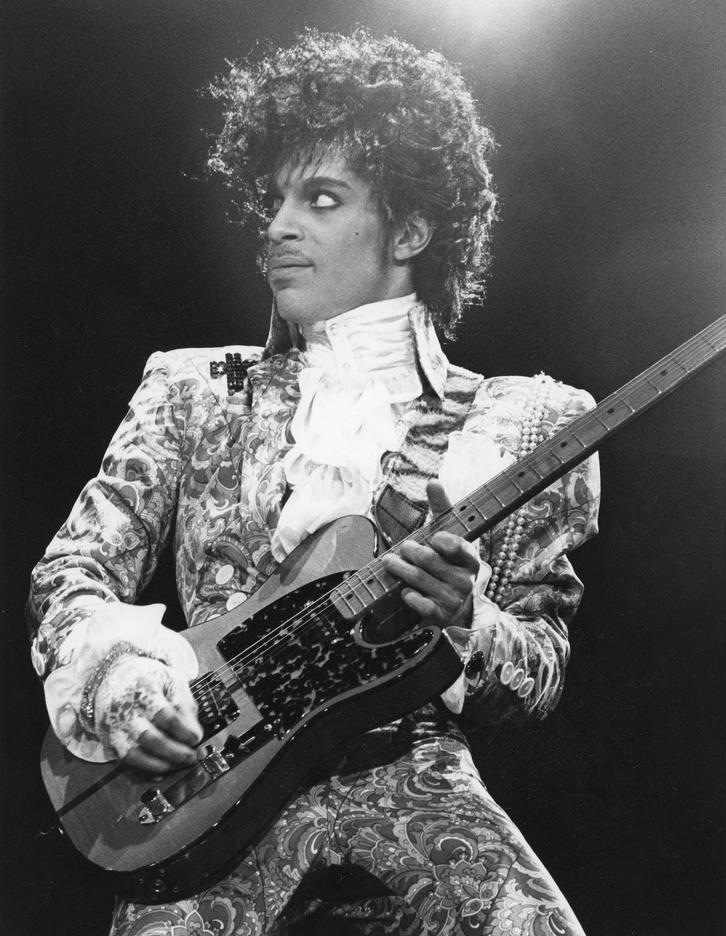
When 1999 came out, reviewers picked up on these themes quickly. One reviewer in Record Mirror famously noted Prince’s “theory” behind the song: it’s 1999, the bomb’s about to drop, so we might as well party hard before everything ends.
Creem magazine’s Richard Riegel described it as “existential party stuff” with Prince pushing subtly for nuclear disarmament. The idea? The thrill of living through an uncertain future makes every moment worth celebrating. Even Prince’s own seductive vibes become “apocalyptic” enough — no need for bombs to spice up the mood.
NME highlighted the mix of dancing and doom: “It’s not that Prince can’t do the apocalypso anymore,” said Barney Hoskyns, painting the song as a fusion between party spirit and darker themes.
Rolling Stone captured it well, calling the track “artfully arranged synthesizer pop” that ponders the future amid nuclear threat. Prince shakes his booty but disapproves of obliteration. This isn’t a simple dance tune — it’s a statement about survival and grabbing joy wherever possible—a spirited “eat, drink and be merry” mantra in a tense world.
Prince’s Political Commentary Predates 1999
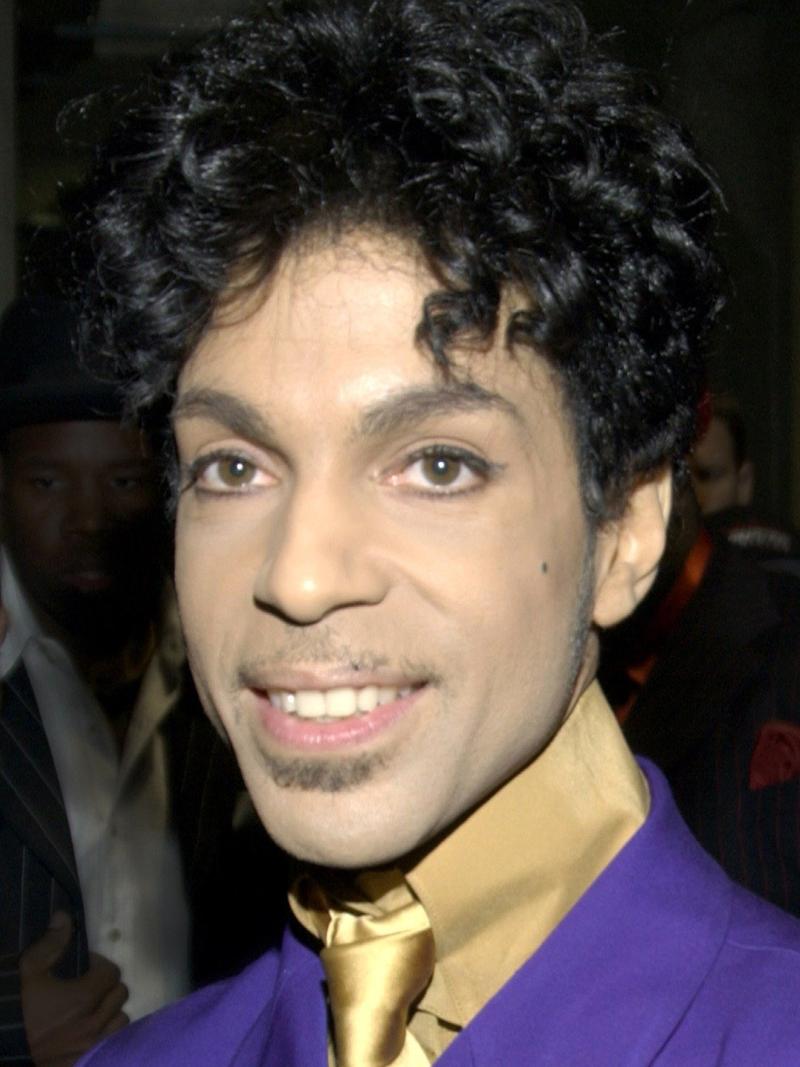
Prince’s apocalyptic concerns didn’t start with “1999.” In 1981, his song “Ronnie Talk to Russia” urged President Reagan to engage diplomatically and prevent nuclear disaster. “Ronnie” clearly means Reagan, and Prince’s lyrics plead for peace: “Ronnie talk to Russia before it’s too late.”
This shows Prince’s engagement with geopolitical realities and fear of nuclear war was ongoing. “1999” just turned those anxieties into a dance party rally.
Wrapping It Up: What Can We Learn from Prince’s 1999?
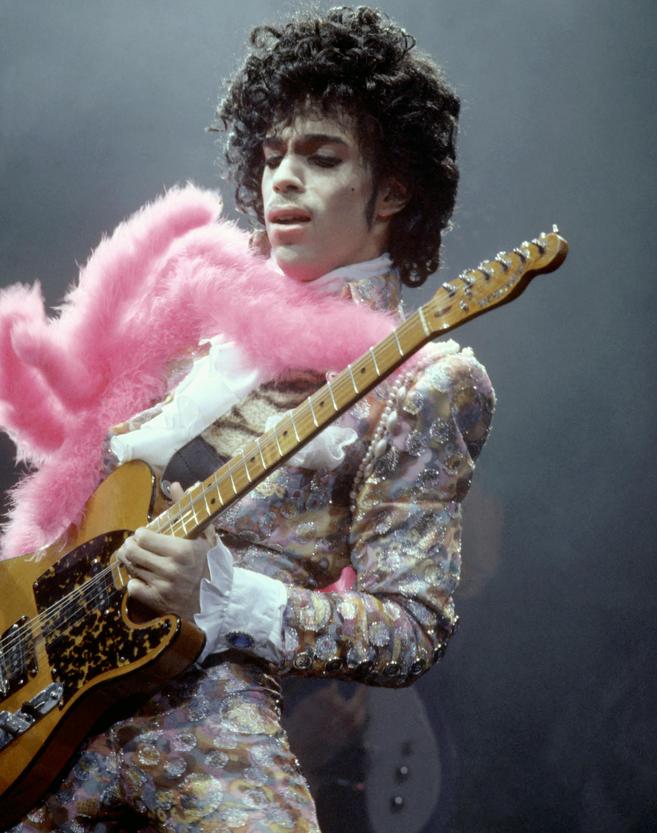
Prince’s “1999” stands as a time capsule of early 1980s fears and hopes. It’s not a millennial tech scare tune but a blend of Cold War dread and wild celebration. The notion of partying “like it’s 1999” isn’t about computer code failures—it’s about living fully when the future feels fragile.
Feeling uneasy about tomorrow? Prince advises: throw a party now. This message resonates even today, when uncertainty abounds.
So next time you hear “Party like it’s 1999,” remember: it’s less about Y2K panic and more about defiant joy facing the end times. Prince invites us to dance, to resist fear, and to celebrate life even when the world teeters on the brink.
Got a favorite “1999” lyric or memory?
Drop it in the comments! How do you interpret Prince’s apocalyptic party anthem in today’s world? Does it inspire you to live boldly? Let’s get the conversation going.
Why did Prince sing about “party like it’s 1999” in 1982?
Prince used “1999” as a symbol of a major moment in time. He imagined a huge celebration at the turn of the millennium. It was about partying hard because the future felt uncertain, not about any computer bug.
Was the Y2K bug a concern in 1982 when Prince released the song?
No, the Y2K bug was not a known issue until the mid-1990s. Prince’s song predates any alarms about computers failing at the year 2000.
Did the song reference fears of nuclear destruction or the end times?
Yes. The early 1980s had strong Cold War fears. Prince hinted at the tension with the possibility of nuclear war. The idea was to enjoy life while the future was risky.
How did critics interpret the apocalyptic themes in “1999” at the time?
Reviews mentioned nuclear war fears and world destruction. Critics saw the song as urging a fun farewell before a potential disaster, mixing existential dread with party energy.
Did Prince address political issues related to nuclear threats in his other songs?
Yes, in 1981’s “Ronnie Talk to Russia,” he urged then-President Reagan to avoid nuclear war. His work often combined political messages with danceable tunes.
